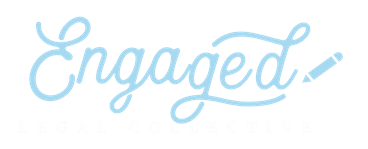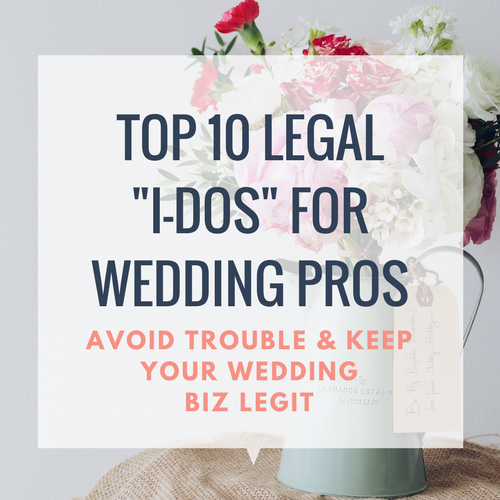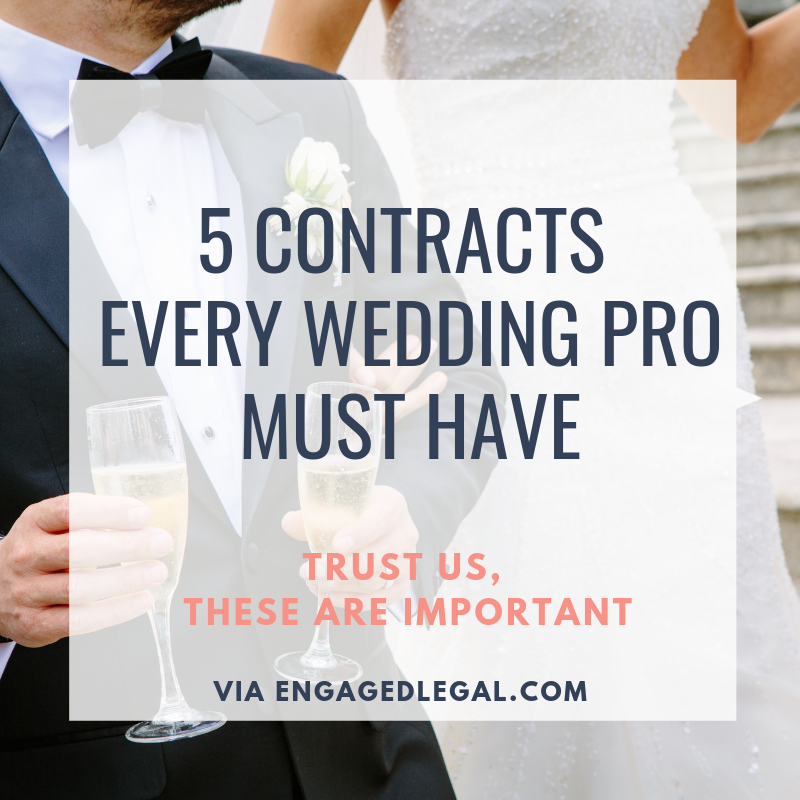Letters from PicRights, Higbee & Associates, and Demands for Copyright Infringement
/Last updated November 5, 2024
Please Note:
-
Please Note: -
**NOTE: Due to the overwhelming response from this blog post, it bears reminding: If you need legal representation in relation to a Picrights demand letter, please contact Caroline in her capacity as a lawyer at her firm, CJFox Law. You can also visit this link to read more and contact Caroline via her firm website.
Engaged Legal is a law blog/ resource. It is not a law firm and cannot represent you or offer legal advice.
It’s a day like any other. You’re hanging out. You’re working on your business. You’re in the zone.
And then, you get a letter.
In this letter, it says that you’ve infringed on a copyright by posting some photo to your website back in 2016. And that letter is demanding $2500 in licensing fees.
What the HECK?
You laugh off the initial shock. This has got to be a scam, right?
Wrong.
While it’s [in my opinion] a predatory practice, it’s not* a scam. I include that asterisk because in my experience, it’s not always entirely accurate, either (more on that below).
And alarmingly enough, in my "law practice life," (remember, Engaged Legal is an educational resource & not a law firm; I’m talking about my “dayjob” 😂) I’ve seen a BIG spike in the number of claims and demand letters sent by groups like PicRights, FoodPhotos, Agence France Presse, and law firm Higbee & Associates.
Let’s talk it out, and figure out what to do next.
Is PicRights a Scam?
The answer is no, they aren’t a scam,.
But, in my opinion and experience, they aren’t always truthful and forthcoming, either.
PicRights is a “copyright enforcement and claims resolution” organization. They use 🤖 bots to crawl the internet and reverse-image search for images belonging to their “clients” or individuals who they represent— or allege they represent. They do represent numerous photographers, including some AP and Reuters groups.
However, it seems that sometimes the individual or company who owns the copyright is not even involved. Allegedly, PicRights collects fees on behalf of the photographer without explicit engagement (note: this is based on anecdotal evidence and my own personal experience). However, on behalf of my clients, I’ve experienced situations where the photographer was unaware.
These bots comb through the annals of the internet, kind of like Google’s search indexer. It finds everything, even things that have been taken off the main website or aren’t linked on your main website.
Then, once they find the image on your server, they send a demand letter for thousands of dollars claiming unauthorized "use" of the images. If you don’t pay them, they threaten to sue for 💸$30k, 💸$150k, or more. These numbers are based on the damages (read: money) set forth in the copyright act.
They provide a claim number and invoice, and ask for “prompt payment” to settle the claim. Otherwise, they say they will escalate the matter to their legal counsel.
Enter Higbee and Associates.
Is Higbee and Associates a Scam?
Higbee and Associates is the law firm representing/ working with PicRights and other various organizations like Agence France-Presse.
Once PicRights escalates the issue— typically because you’ve told them to go pound— they send it to Higbee & Associates.
Higbee & Associates then sends you a nastygram via email and/ or snail mail. They demand more money and threaten to file suit for “up to $150,000 in damages.”
And.... they aren’t lying. They will file. They have done it in the past. They aren’t totally bluffing.
BUT….they also might not have the rights they claim they do. Their letters aren’t always telling the entire story, and they often — in my experience— overstate their rights and the remedies available to their clients. They may not be able to claim those “big money” damages.
[In my opinion] they can be very nasty and threatening. [In my opinion] they are deceptive. [In my opinion] they are misleading. [In my opinion] it's a predatory practice that exploits small business owners using outdated copyright laws that haven’t quite kept up with the internet.
But that doesn’t mean it’s a scam. In fact, many times, they do have the right to demand some sort of compensation.
But I’ve also seen instances where they don’t have that right. And, additionally, I have represented artists where they have not (knowingly) assigned these rights. And in my opinion, that’s shady.
Wait… so what do I do if I get a letter from PicRights?
Cut back to scene one, where you’re sitting with that demand letter in your hands. You’re sweaty and stressed. I get it. So what now?
If you're contacted by any of these organizations OR receive communications from them, DO NOT ENGAGE in a back and forth with them.
Don’t sign anything without having a lawyer look at it.
Don’t pay anything without having a lawyer look at it.
Don’t admit, deny, or put any dates, uses, or other admissions in writing. This includes saying “this is fair use!” or “I got it off of Wikipedia!” Remember: in this context, “everything you say can and will be used against you!”
DO NOT think they will just go away. These are automated and/ or high-volume letters that are part of a very well oiled machine, and they will more than likely continue to follow up.
DO ask for their copyright registration certificate if you’ve communicated with them.
DO sit down and write out the following information:
Where you found that image (if possible)
The first date it appeared on your website, blog, or social media
The last date it appeared on your website, blog, or social media
The context in which it appeared on your website, blog, or social media
If it is still available on your website, blog, or social media.
DO Get a lawyer. Make an appointment with one who practices copyright law. They will want to know those dates that I posted above, because copyright is a very fact specific practice.
DO NOT panic.
What about the Statute of Limitations?
As of 2024, we know that the statute of limitations for copyright law is 3 years. HOWEVER, we still have a murky analysis on when the statute of limitations for copyright starts. Warner Chappell v. Nealy didn’t help too much, and we have a “circuit court split”– some use the date of alleged infringement, and some use the date the copyright holder “knew or should have known” the infringement began. A consultation with a copyright attorney should help you figure out what date you need to consider.
In the future…..
Always use images that are properly licensed and don't just grab screenshots off of Google images.
Audit your website. If you don’t know where every single image on your website, blog, and social media came from, take it down. Then, delete it from your server. Their bots can find past use and locate those old files. Instruct all of your social media managers, web designers, and content creators to use only approved sources for images.
Consider indemnity clauses in agreements with third party designers + creators. Because remember: not knowing isn’t considered an excuse! So if your web designer uses a non-license photo, you’re still on the hook for infringement. Indemnity clauses can help make sure they repay you for that loss.
***
NOTE: Due to the unexpected volume of responses resulting from this blog, it bears reminding: Engaged Legal is not a law firm and cannot represent you or offer legal advice. If you need legal representation, please contact Caroline at her firm, CJFox Law.




















